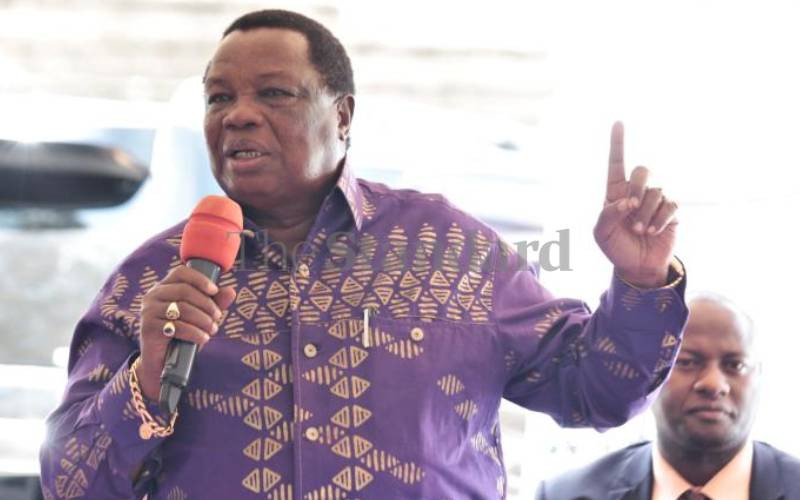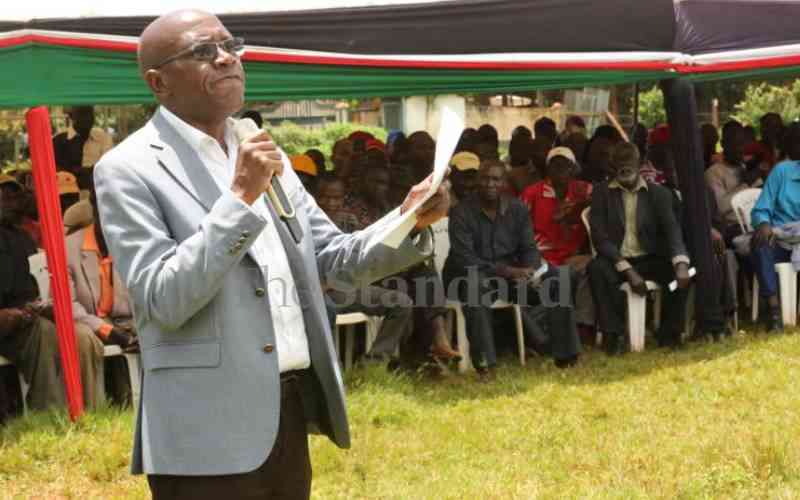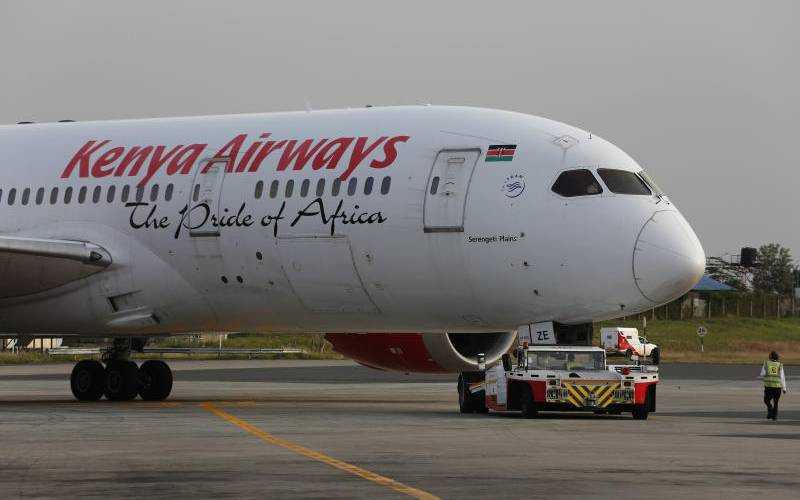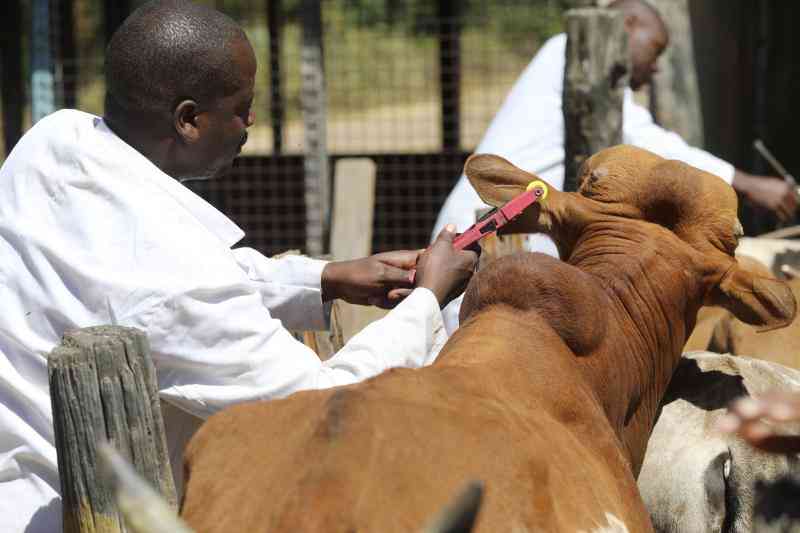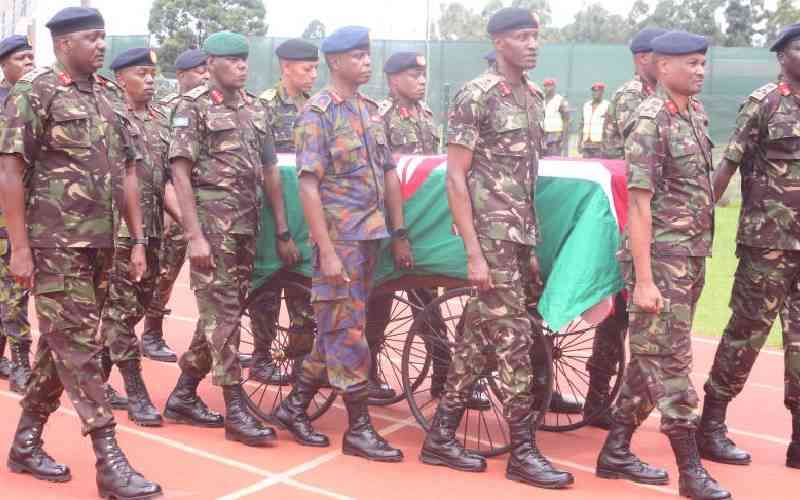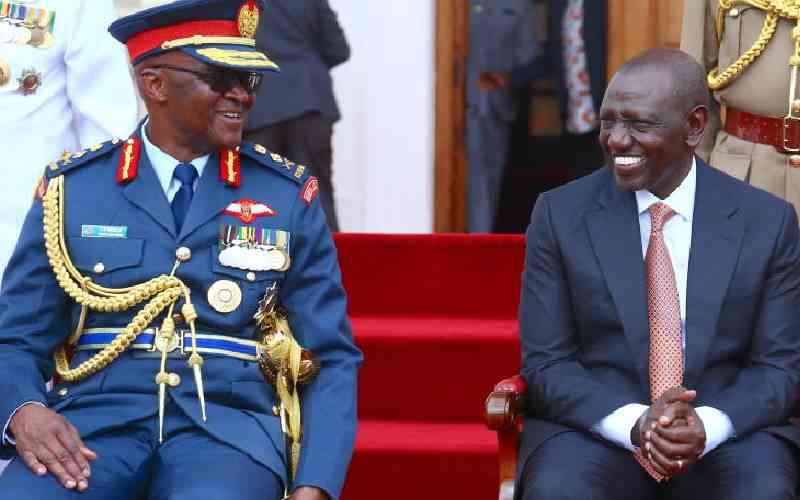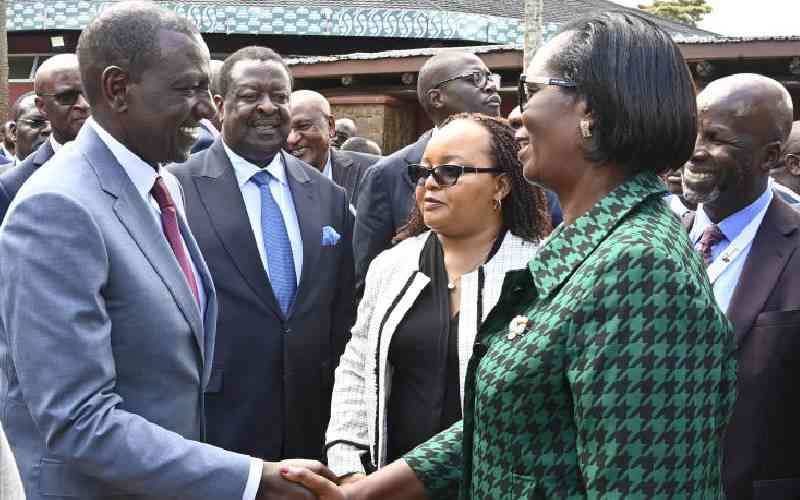By Standard On Saturday Team
The man who blew the whistle on the blood gold scams in Nairobi fled the country “in fear for his life” just days after talking to the police in 2010.
This was after the main suspect was released from custody on bond just a day after being arrested and police failed to provide the informer with protection. The whistle-blower’s fears were vindicated with the killing three months later of a Kenya Revenue Authority employee linked to a gold fraud investigation.
Now, however, he is back in the country living the life of a millionaire real estate mogul. Chris Okeyo Obure, 33, owns a house in Lavington, where he lives with his family, and three luxury vehicles valued at more than Sh20 million.
Commodity trading
“I’d say I’ve made it,” he bragged to journalists recently, saying he had made his money in real estate and commodity trading. “You can’t employ me even if it is for Sh1 million because I make that amount in one or two weeks.”
His role as a former employee of one of the people accused of masterminding the gold fraud rings has not received any publicity locally. His identity can, however, be revealed because it has been in the public domain since last year when the United Nations released a report on smuggling from the DRC.
The Standard On Saturday can also reveal exclusive details on why the whistle-blower fled to South Africa after exposing a network spanning at least five countries in East Africa. His evidence sparked a series of botched or stalled investigations that are the subject of the latest Jicho Pevu and Inside Story reports, ‘Dhahabu ya Mauti’ and ‘Blood on Gold’ by KTN’s Purity Mwambia and Dennis Onsarigo (To view these, visit standardmedia.com).
Obure, aka Philip Obure, went to the police on November 8, 2010 to report a crime in progress. He told two senior officers at the Criminal Investigations Department about a million-dollar con game allegedly run by his boss, Paul Kobia. A person known to police, Kobia has been previously linked to one Joe Karimi, with whom he allegedly ran a smelter used to produce and sell counterfeit gold. Kobia was arrested a day later, rushed to court and released on a bond of less than half a million shillings.
Police eventually dropped the charges against the man UN investigators called the “Kenyan mastermind” after one of the witnesses Obure had warned signed an affidavit saying his firm had no complaints against Kobia and his associates. According to confidential Government documents seen by this team, Obure was a former employee of Kobia’s Great Lakes Group of Companies. He claimed he came across evidence of the gold frauds in late 2010, while working as Kobia’s Chief Strategist and Director of Business Development.
Subsidiary companies
The Great Lakes Group, which was run from a suite of offices at Nairobi’s Hazina Towers, is linked to about a dozen subsidiaries involved in property, real estate, motor vehicles, transport and clearing and forwarding. The UN report claims these businesses are used to support a fraud ring involving dozens of people in Kenya, Uganda, Tanzania, the Democratic Republic of Congo, and elsewhere. The most prominent of these people are Jean Claude Mundeke Kabamba and Benoit Muke Katumbi (see related list of suspects).
Kobia, who also uses the names Paul Ilunga Ngoei, Choma and Kabeberia, is reported to have a customs office at the Jomo Kenyatta International Airport “which only operates at night”. According to UN investigators, he has (or once had access to) a Government of Kenya seal, and letterheads from several Government and private institutions.
With the help of these facilities and documents, he purports to trade in gold mined from the Likasi mines in the DRC. However, UN investigators say, the gold is usually non-existent or counterfeit, with buyers tricked into paying tens of millions of shillings in various fees before learning they have been defrauded.
“Kobia allegedly gets police (officers) to man the door at the (Great Lakes Group’s) JKIA office and engages the services of a person referred to as the ‘Chief Customs Officer’,” a confidential Government letter written in March last year reveals.
Stay informed. Subscribe to our newsletter
Prospective buyers
“After they have been shown gold at the airport office (linked to Great Lakes subsidiary Sapphire Freighters), prospective buyers are told to deposit money in an escrow account to cater for lift charges (airport charges, customs fees, freight and clearing costs).”
Escrow accounts are temporary instruments created by third parties, usually lawyers, to hold money safely for parties engaged in a business transaction. The lawyers hold the money from the buyer and only release it to the seller when the goods being traded are delivered. In theory, they protect buyers from losing money to fraudsters. However, once buyers dealing with Nairobi’s gold merchants deposit money in escrow accounts, they lose the cash and do not get any gold. The most common reason is alleged objections or demands for documentation by local, regional, or international authorities.
The gold fraud cartels have been using the same two or three lawyers for the transactions. One of those interviewed by this team after being questioned by police claims to know nothing about the scams, despite repeated contact with victims of the fraudsters he represents. Another was under investigation by a banking fraud team in 2010 after about $10 million (Sh850 million) stolen from a US company was found in his firm’s account. In 2009, using the name Paul Ilunga Ngoei, Kobia allegedly received $350,000 from the US-based Community Finance Group as part payment in a deal for 300kg of raw gold.
Gun point threats
Police say the buyers in the case reported being threatened at gunpoint, resulting in the withdrawal of a weapon issued to one of the suspects. In 2010, the Americans filed a lawsuit against the Government of Kenya, claiming $50m and accusing state officials of working with the fraudsters.
Kobia’s alleged fraud network was exposed for a second time on November 1, 2010, when he had trouble opening a document on his office computer. He asked Chris Obure to help, as a result of which the whistle-blower noted transactions between the Great Lakes Group and a Hong Kong-based company called Meranti Holdings. Represented by Pretoria-based businessman Dennis Schmelzenbach, Meranti Holdings was about to pay $200,000 (Sh17 million) in lift fees for a 300kg consignment of gold valued at $5 million (Sh400 million). Schmelzenbach and his partners James George and Alan Lam had signed a contract to buy the gold from Caroline Wamba, a Kenyan woman claiming to be the “chairlady of Likasi mines”.
Believing the foreigners were about to be defrauded, Obure got a friend to send an email to Schmelzenbach warning him not to send any more money to Kenya. He also went to the CID headquarters on November 8 and met Deputy director Amin Mohammed, who delegated the case to the new head of the Serious Crimes Unit (SCU), Senior Superintendent Danson Diru Ososti.
Gold samples
Police arrested Kobia and some accomplices a day later, froze $200,000 held through a lawyer in Nairobi and seized three boxes filled with alleged gold samples. Kobia was charged in court on November 9 with obtaining money by false pretences and conspiracy to defraud. However, as with a previous arrest in 2009 over another conflict gold fraud, he was promptly released on a Sh400,000 bond awaiting hearing of the case.
Six days later, Obure fled to South Africa with Schmelzenbach’s help. He then visited the Kenya High Commission offices in Pretoria and narrated his tale to diplomatic officers there. He claimed his life “was in danger” and added that Kobia “has a pistol and a shotgun”, both legally licensed firearms. According to a Ministry of Foreign Affairs document seem by this team, a confidential note detailing Obure’s story and the alleged attempt to defraud Meranti was sent to the Police and the National Security Intelligence Service. The matter eventually resolved itself in interesting fashion: Keen to release the $200,000 frozen by police, James George, one of the Meranti Holdings’ officers, signed an affidavit in January this year saying he had no complaint against Kobia. The charges against the Kenyan were dropped.
DRC authorities
In an attempt to verify whether the gold Meranti had been offered was real and legal, Schmelzenbach reported the matter to authorities in the Democratic Republic of Congo. At about the same time, DRC President Joseph Kabila raised the alarm about a 2.5 metric tonne consignment of real gold, valued at Sh8 billion, which he believed was being smuggled from his country to the United Arab Emirates. The gold, it was feared, was being sold to fund armed groups or rebels in eastern and northern Kivu regions of DRC.
Kabila sent a ministerial team to Nairobi in January to find this consignment and seek help unearthing the cartels smuggling conflict minerals. Police set up a new team involving officers from the CID, the Criminal Intelligence Unit and the Special Crime Prevention Unit to track the 2,500 kilos of gold, which had gone missing after passing through JKIA. Less than 24 hours after this team visited the Customs office at the airport, senior KRA employee Joseph Cheptarus was accosted by four gunmen outside his home and shot dead.
Additional reporting by Dennis Onsarigo and Purity Mwambia
 The Standard Group Plc is a
multi-media organization with investments in media platforms spanning newspaper
print operations, television, radio broadcasting, digital and online services. The
Standard Group is recognized as a leading multi-media house in Kenya with a key
influence in matters of national and international interest.
The Standard Group Plc is a
multi-media organization with investments in media platforms spanning newspaper
print operations, television, radio broadcasting, digital and online services. The
Standard Group is recognized as a leading multi-media house in Kenya with a key
influence in matters of national and international interest.
 The Standard Group Plc is a
multi-media organization with investments in media platforms spanning newspaper
print operations, television, radio broadcasting, digital and online services. The
Standard Group is recognized as a leading multi-media house in Kenya with a key
influence in matters of national and international interest.
The Standard Group Plc is a
multi-media organization with investments in media platforms spanning newspaper
print operations, television, radio broadcasting, digital and online services. The
Standard Group is recognized as a leading multi-media house in Kenya with a key
influence in matters of national and international interest.

